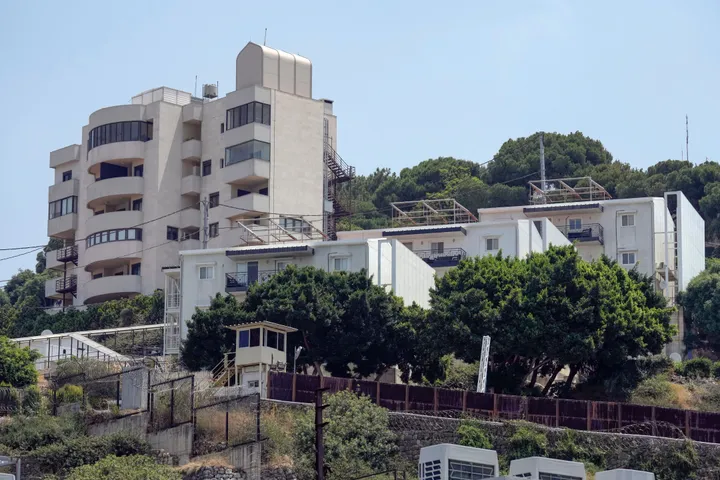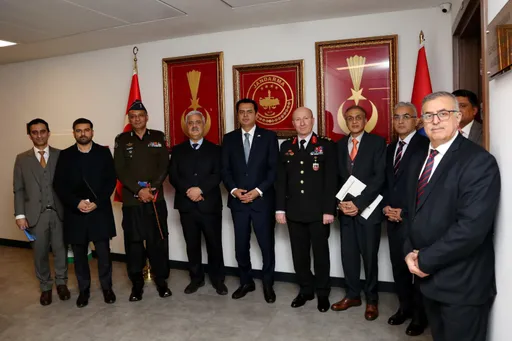The EU's announcement to move Balkan accession forwards, making it "more credible, dynamic and predictable" a week after Britain officially left the EU, was as much about the need to address the future of the region as it was about the bloc putting on a brave face and showing that it intends to keep expanding.
"We cannot rely on rhetoric to assess if this will definitely mean an outward-looking EU," says Misha Popovikj, a researcher working at the Institute for Democracy "Societas Civilis", in Skopje.
The European Commissioner for Neighbourhood and Enlargement, Oliver Varhelyi, made the proposal as prospects for Albania, North Macedonia, Kosovo and Bosnia joining the EU had come to a halt in the face of French opposition and that of several other countries.
The announcement seeks to take a more comprehensive approach to accession talks but also, crucially and maybe controversially, formalises the 'political' aspect of these negotiations.
"The published methodology is not something completely new. On a technical level, it seems that they are attempting a more holistic approach to reforms. We'll see how this will turn into practice" Misha Popovikj told TRT World.
The new proposals envisage clustering the negotiating chapters into six categories and opening them as a whole instead of the current approach of sequencing and only opening one after another has been closed.
"The methodology itself is to accommodate the reservations of some Member States," added Popovikj in reference to Paris' objections which resulted in the postponement of accession for Albania and North Macedonia despite recommendations by the European Union commission in October.
Meanwhile, Cvetin Chilimanov a former adviser to the Macedonian President Gjorge Ivanov is more pessimistic about the likely result of the new formula.
"For a long time, Macedonia faced political decisions to block its enlargement," says Chilimanov in reference to Greece's objections to Skopje's accession ambitions. "But these were often disguised as a problem with the merits of our application."
"Now we hear that the process will be made more openly political and member states would have the right to block countries they don't like," added Chilimanov, speaking to TRT World.
When France and several other EU member states controversially blocked North Macedonia and Albania's accession citing insufficient progress — in a decision that some decried as "perverse liberal racism" — many saw it as the death of the Balkan accession prospects.
"These days Macedonia does not meet the criteria for opening accession talks - just observe the systemic arrests of opposition officials and the corruption in the judiciary - but because of the imposed change of its name, EU countries are willing to allow it to open accession talk," said Chilimanov.
Kosovo's newly minted centre-left and bookish Prime Minister Albin Kurti in a recent interview said: "The European Union is such a serious enterprise that if it is not to move forward, it will definitely move backwards."
Kurti, of course, had in mind the increasingly fledgeling prospects of the Balkans making it into the EU as fatigue sets into the bloc struggling with an identity crisis and rising nationalism.
By every measure, Balkan countries are struggling with demographic decline, widespread corruption and are decades away from joining the EU or attaining the standards necessary.
Serbia and Montenegro, the leaders in the Balkan pack, are unlikely to join before 2025.
Albania, for instance, is in the midst of a political crisis which has resulted in the opposition Democratic Party boycotting parliament. Its prospects for joining the EU seem as far they have ever been.
Indrit Vokshi, a Member of the National Council of the Democratic Party in Albania, views the country's EU prospects as no better than eight years ago when the Socialist Party took power under the premiership of Edi Rama.
Endemic corruption and a lack of job opportunities have resulted in more than 300,000 Albanians leaving the country. The Rama government has also been accused of clamping down on the opposition.
"In reality, with this government in charge and this treatment being given to the human being in Albania by the 'Rama' state, Albania is far from the European Union," said Vokshi.
What Albania needs, says Vokshi, is a "new government, classically liberal, European, and peaceful".
Tellingly, the new EU strategy for the Balkans seems to reflect very little of what is happening on the ground. Each country has an accumulated set of problems which exist beyond the accession negotiations.
"Clearly it is in Macedonian interest to advance to the group with Serbia and Montenegro," said Chilimanov adding that some in the country would favourably view the move into the "mainly Christian group of Balkan states" and leaving the three majority Muslim countries in the Balkans; Albania, Bosnia and Kosovo behind.
The notion that some EU member states view the accession process through a faith-based lens has been noted in the past, even if they are not central to it.
John Paul Newman, an associate professor of Balkan and East-Central European history, doesn't believe "such attitudes are of overriding importance in the EU's approach to accession in the Balkans".
"How far and how fast enlargement should proceed" is of more importance Newman added speaking to TRT World.
This approach also reflects an unease amongst Western EU members that expansion to Eastern Europe, primarily led by Britain, may have been too fast.
At the same time, the bloc was still in the process of defining itself and democratic institutions steadily taking root amongst the ten new entrants. Now several countries have seen backsliding in democratic norms with the EU with little power to address it.
Attempts by right-wing leaders to make "arguments about Europe being a continent based on Christian values" are "bogus" said Newman.
"They will likely try and make political capital out of countries with large Muslim populations joining the union, and it is important the EU takes a stand against this" added Newman.























